
views
In every election, there are conversations and analysis on various factors that impact the results: caste, money, unemployment and agrarian crisis, among others. In all of these factors, women appear as a footnote. Do women vote according to caste? What do they want from the government? Do they feel a woman politician is better for women? This series is an attempt to find out How Women Vote.
Raitara, Varanasi: Hirawati Devi, 48, has voted for both Akhilesh Yadav and Mayawati, but this time she has set her mind on the button she wants to press when Varanasi goes to polls on May 19. "Who will I vote for? Modiji, of course," she declared.
Hirawati belongs to the community of Musahars, one of the lowest tiers in the caste hierarchy, they are among the poorest communities as well. The term 'Musahar' literally translates to ‘rat eaters’.
The Musahars, often called "untouchables", face discrimination and are referred to by their caste name instead of their names. Tucked away in the village of Raitara, about 30 miles away from the holy city of Varanasi, the 40 families who live here switch between working in brick kilns and farmlands or as servants in the homes of upper-caste villagers.
For the women of this community, discrimination and abuses are common both in and outside their home. "Our husbands drink and then beat us up. What can we do? We have to take care of the children even when we go out to the brick kilns to work for months. In the farmlands, Thakurs call us 'haramzadis'. We have been begging since birth, we have to keep begging," said Mithi, 29-year-old and mother of three.
The village that is home to 200 people has six half-completed toilets; none of them has ever been used or can even be used. Electrical poles and meters have been installed in every home. The bills, too, come regularly. However, electricity has not reached any home in this village.
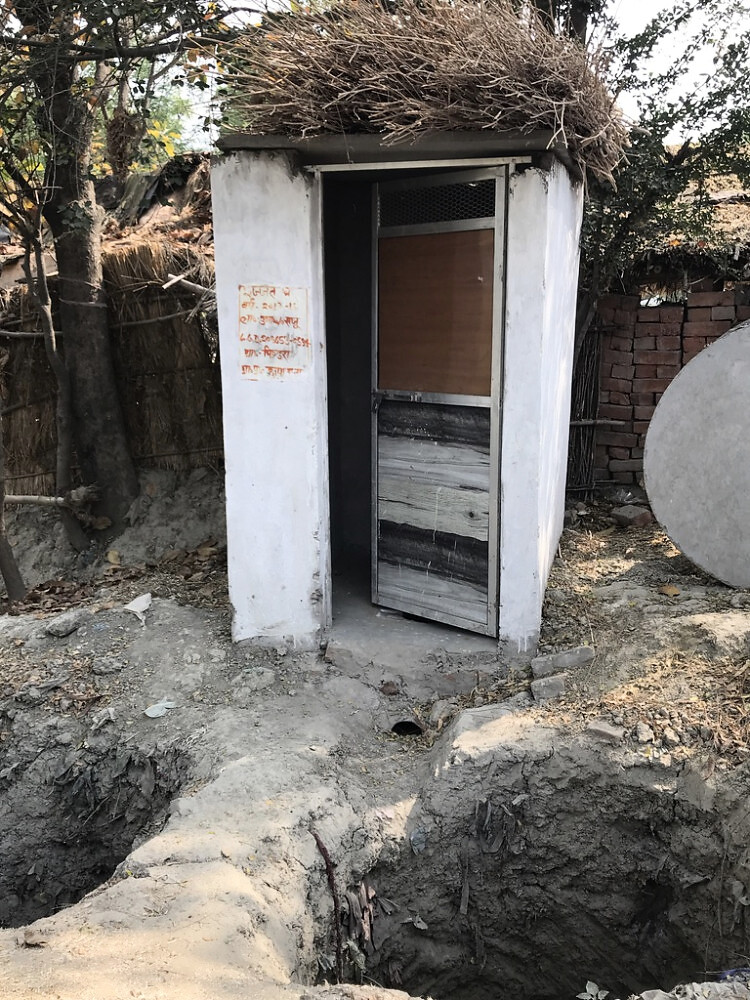
One of the six half-completed toilets in the village.
All the families share water from a single hand pump. No children from the village go to schools - some of them dropped out because they have to travel to brick kiln areas with their mothers and stay there for months, many stopped after facing caste-based discrimination, and others think education is pointless for the youth of their community.
On a peak summer afternoon, a few weeks before Prime Minister Narendra Modi's massive roadshow in Varanasi, the women gathered to discuss politics and decide who deserves their vote.
Among them, a 9-year-old Raju sat quietly. He was dressed in his school uniform. "I used to go to school, I don't go anymore," he said. Raju's mother added that a few months ago, a teacher from his school beat him so hard that Raju came back home with a fractured hand. "He stopped going since then," she said.
Shruti Naghuvanshi, one of the founders of People's Vigilance Committee on Human Rights, an organisation that works on the eradication of caste-based injustices, especially in Uttar Pradesh, said that access to everything from healthcare to education is a fight for the Musahars.
The horror stories are not limited to classrooms. "Back in the brick kilns, the Musahar women are subjected to abuse. They are disrobed and often raped by the middlemen when they ask for their wages," said Naghuvanshi.
Usually, the brick kiln workers get paid Rs 600 for every 1,000 bricks. "For them, it's a fight to even get that meagre wage," she added. The human rights activist said that sometimes when the women are thirsty, the middlemen force them to have sex in exchange for water. "Their husbands are also helpless and don't complain," she said.
In the last few years, Naghuvanshi said, that women from the marginalised community have found their voices. "During elections, there's a lot of violence in their home. Politicians visit them a day before voting, offer them alcohol and some money to buy votes in exchange," she said.
This negotiation happens with the men of the village who then force their wives to vote for the candidates they struck a deal with. "The women get beaten up for voting candidates of their choice," she said. However, on one of her recent visit to the village, the women told her in confidence, "We will lie to our husbands. We will vote for who we want to."
The one name that everyone in the village knows is Modi. Many of them don't know the Prime Minister's first name. Naghuvanshi said the only reason they know Modi's name is because party workers from the BJP had visited the village during the 2014 elections. "No neta has ever seen this village," she added.
For many in this village, there's only one thing that matters during the election: A visit from the politicians.
"We have no land, no house, no water. That's why no politician cares about us. Nobody even comes here to see the condition we are living in," said Asha, a resident of Raitara village.
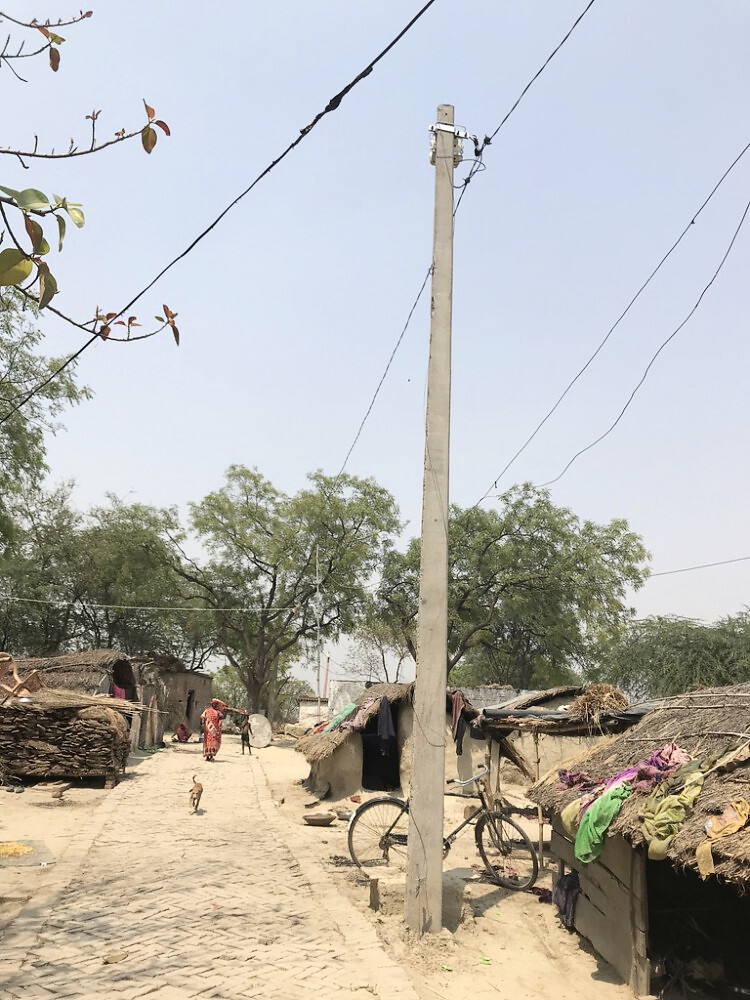
An electric pole in the village which does not provide electricity to households.
When asked if they want someone from their community to represent them in politics, the gathered women started giggling. "You mean the Musahars? Thakurs will kill us, they will never let our community people contest elections," Hirawati said.
Despite the rampant malnourishment among children, and Swachh Bharat and 'Beti Bachao Beti Padao' being a very distant dream, the women in the village said they will still support Modi.
"We will vote for him. He has promised to do good work. But to give us all that he has promised, he has to come visit us. Will he?" asked Asha.
While the women discussed their choice of candidates, one of their husbands tried to intervene to tell them who they should vote for. Asha snapped. "Did we ask you?" she said, as she turned around to explain her demands from political parties.
A few weeks back, a transformer had caught fire burning a large portion of a wheat farm. The villagers get about 3 quintals of wheat after they farm for six months. This means a little over a kilo of wheat for every person. "When we went to the gram pradhan, she shooed us away," Asha said.
The women also complained of finding no work in the Mahatma Gandhi National Rural Employment Guarantee Act (MGNREGA) scheme. While the demand for jobs under MGNREGA has been rising, the wage rates under it have not kept pace. As per a government notification, for 2019-20, wage hikes range from a meagre Re 1 to Rs 17 for various states and union territories – an average of 2.16% across the country.
"If we work for 15 days, we get paid for 10 days," Hirawati said, adding that the payments are usually late and more often than not there is no work.
History has witnessed how women are often reduced to be the footnote in political parties' manifestos. It's worse when they belong to marginalised communities.
"We have been fooled. They have built toilets but we can't use them. Even the gram pradhan doesn't meet us," Asha said. She added that the pradhan of their village is a woman. "She says that she won't do anything for us because we didn't vote her. Now we want to vote for someone who will win," Asha said.












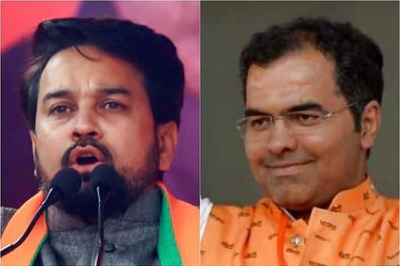
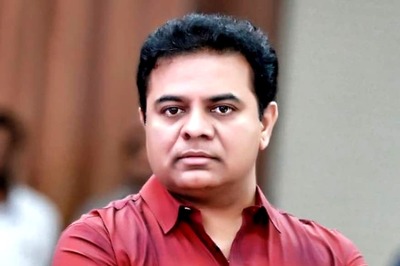
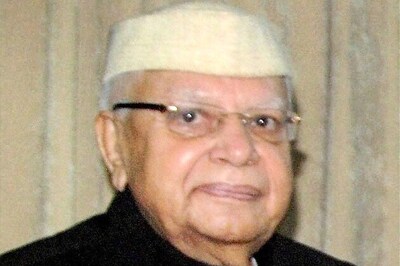



Comments
0 comment